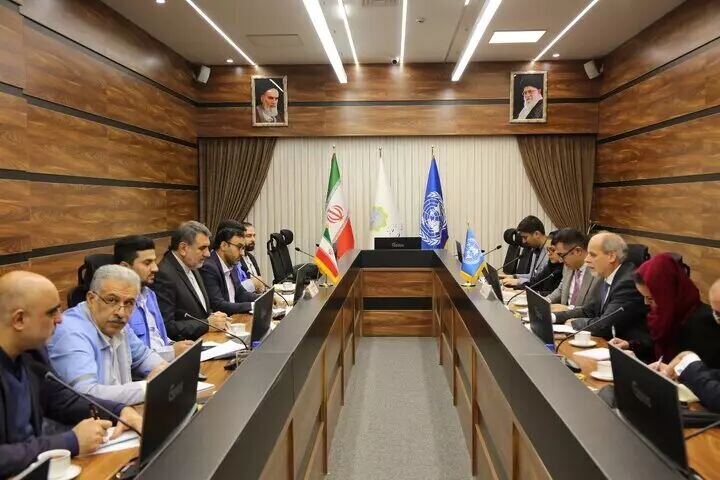UN, Crisis Management Organization to set up committee to address challenges

TEHRAN –The head of the Crisis Management Organization, Hossein Sajedinia, and the United Nations Resident Coordinator for Iran, Stefan Priesner, have underscored expanding cooperation by establishing a joint steering committee to identify and address existing challenges.
During a meeting held on Tuesday, the two officials discussed ways to utilize international experiences to train forces and foster interactions with other countries.
“The meeting confirms Iran’s capabilities in managing crises,” IRNA quoted Priesner as saying.
The primary goal of the meeting is to take certain steps towards enhancing collaborations between Iran’s Crisis Management Organization and the UN specialized agencies, he said, adding that in countries prone to natural disasters, preparedness in the crisis management system is crucial.
All the UN specialized agencies are fully ready to cooperate with Iran's Crisis Management Organization. Establishing a steering committee is proposed to deal with the main issues and challenges in the field and pave the way for more interactions, he added.
Referring to the role of UN affiliated organizations and UN funds that provided rapid-response aid to the earthquake-hit areas in the northwest and flood-affected regions in the southeast, Priesner said, with proper coordination of the country’s Crisis Management Organization, humanitarian aid including emergency relief items, projects, and financial aid were provided to the regions.
UN will continue to provide even more support to the country in similar cases in the future at the request of the Crisis Management Organization, the official stressed.
Sajedinia, for his part, said the meeting is a good start for developing international cooperation. He expressed optimism about taking effective steps to utilize modern facilities and holding training courses during the next meetings.
“Iran is a stable and prosperous country that has a record of providing humanitarian assistance to the international community including neighboring countries during various natural crises."
The United Nation’s cooperation with Iran can help the country in providing greater assistance to its fellow citizens as well as other countries in the region and the world, the official noted.
“Promoting the resilience of the society in facing natural hazards and various other accidents is one of the most important programs that we will pursue,” Sajedinia stressed.
To do so, a comprehensive road map has been designed for the organization to clarify the tasks of other institutions, focus on public education, and promote a culture of resilience, he added.
MT/MG
Leave a Comment